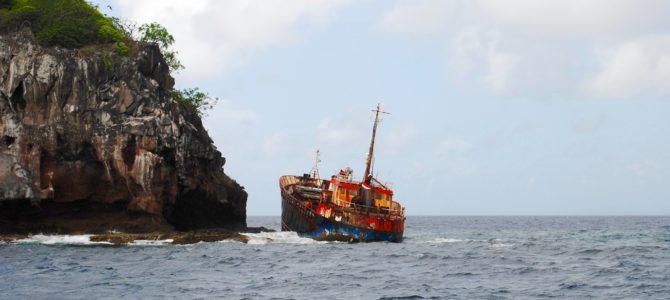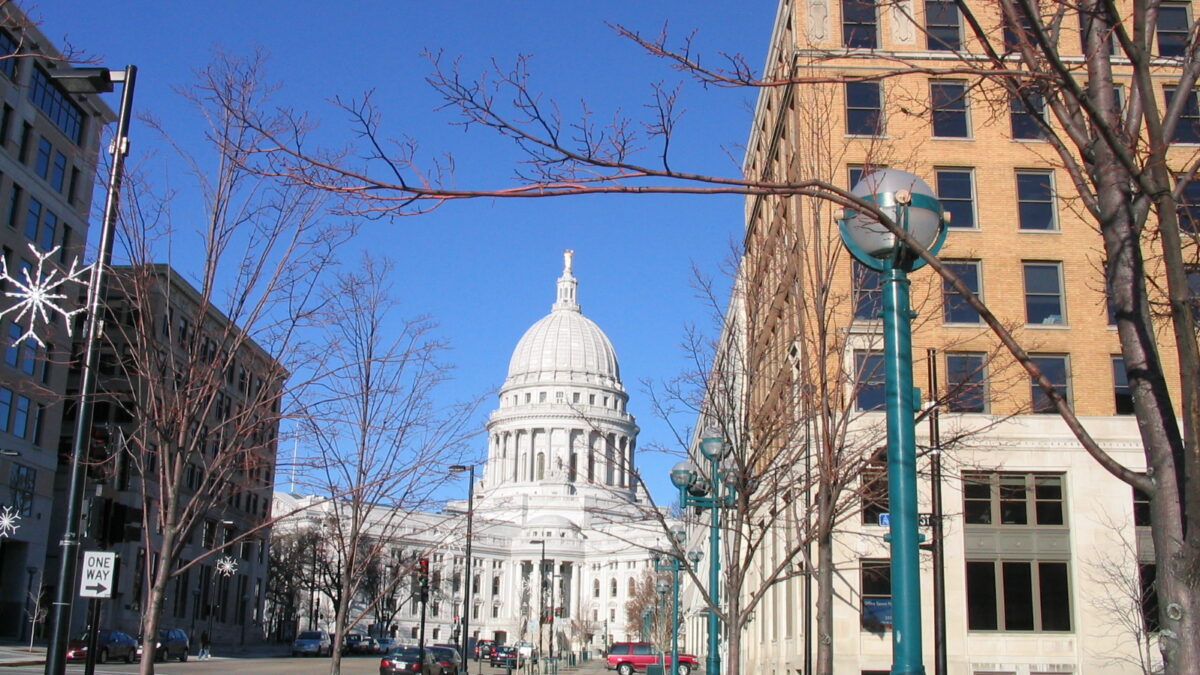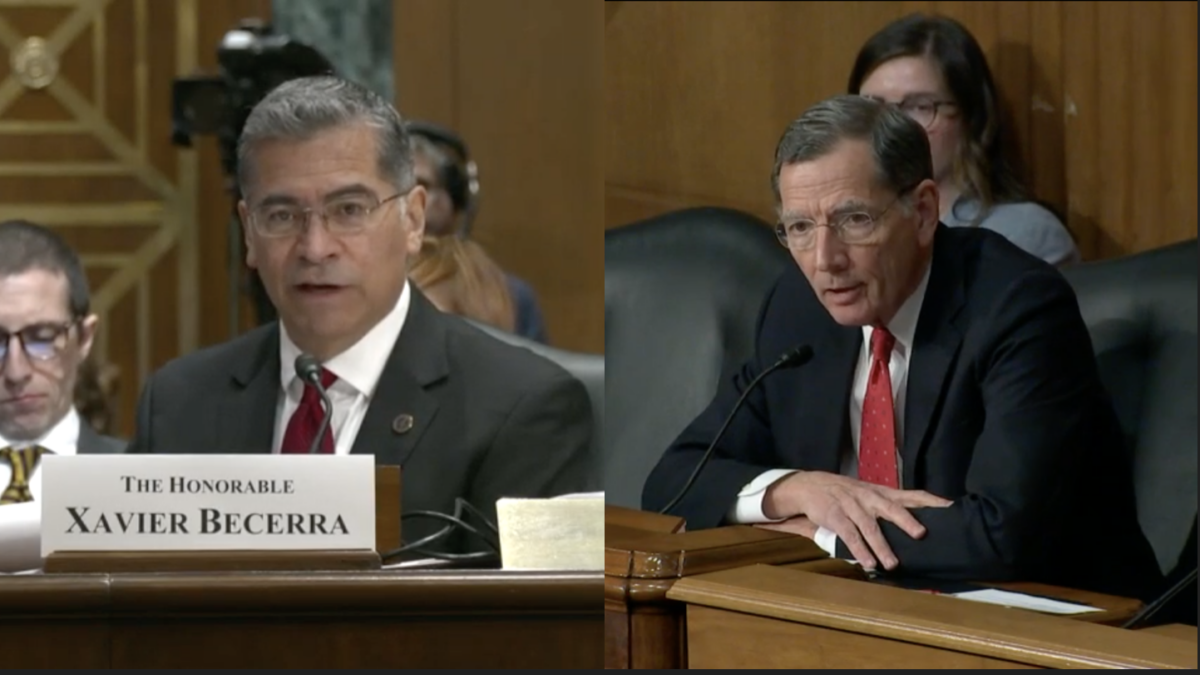
Vice President and in-name-only border czar Kamala Harris finally scurried down to El Paso, Texas two weeks ago. After months of dodging and trivializing the issue, Harris’s eventual visit failed to address the crowded and unsanitary correctional facilities, the influx of migrants in border towns like Del Rio, the regular migrant drownings and rescues in the Rio Grande, and widespread reports of trespassing, damage, and theft on riverfront ranches and properties in Val Verde and Kinney counties.
Biden promised a more humane approach to immigration. Yet there is nothing humane about yielding border control to criminal cartels who traffic and abandon toddlers and brutally rape unaccompanied children and women. Thanks to Biden’s encouragement, the surge in migrants rushing to the border — with cartels enjoying a monopoly on illegal crossings — has escalated an already bad system that exploits the most vulnerable.
It’s also not compassionate to ignore the surge in smuggling of fentanyl, a narcotic responsible for the deaths of around 36,000 Americans in 2019 alone. So far in 2021, U.S. Customs and Border Protection have seized as much fentanyl as in 2019 and 2020 combined. The Texas Department of Public Safety reported an 800 percent increase in the quantity of fentanyl apprehended at the border in the first four months of the year compared with the same period last year, enough fentanyl to kill 21 million people.
Australia Proved Border Control Works
Ordinary Americans understand what elites pretend not to: a serious country can’t lose control of its borders. Australia’s two-decade border security journey tells an instructive story of political leaders who grasped this fundamental point, and those who didn’t. Australia’s tough stance has signaled a defense of territorial sovereignty, a refusal to outsource immigration control to human trafficking networks, and an understanding that public support for controlled migration hinges on strong borders.
In 2001, amidst surging unauthorized maritime arrivals, Australian Prime Minister John Howard launched a package of legislative changes and strict border control policies called the Pacific Solution to curb illegal boat arrivals and human trafficking. These changes excised islands around Australia from the migration zone, deployed the Royal Australian Navy and customs officials to turn back boats, and processed asylum seekers in mandatory offshore detention centers on Nauru and Papua New Guinea’s Manus Island.
The catalyst was the Norwegian freighter Tampa’s attempt to unlawfully enter Australian territorial waters and drop off hundreds of illegal, mostly Afghan migrants rescued at sea. Howard found the violation unwarranted, and the justification exaggerated. Special forces were dispatched to board the Tampa and prevent it from sailing any closer to Australian territory.
Howard’s insistence that a government must control “who comes to this country and the circumstances in which they come” received resounding public support across middle Australia. Howard maintained his actions weren’t just about public opinion, but also about defending the national interest.
Border Control Deters Human Trafficking
While Australia’s border policies have been targets of controversy — owing largely to reports of abuse in offshore detention centers and concerns about the lengthy detention of children — the numbers indicate discouraging human traffickers has been effective in stopping the boats. The number of illegal boats plummeted from dozens of vessels with thousands of passengers arriving each year to precisely one vessel carrying a single person in 2002.
When the subsequent Labor government began reversing those policies in 2008, human traffickers came back and illegal boat arrivals surged. Five years of left-wing incompetence and handwringing resulted in the arrival of more than 50,000 migrants in unauthorized boats and the deaths of more than 1,100 migrants at sea.
Within 18 months of the implementation of Howard’s Pacific Solution, the share of asylum applicants who arrived illegally by boat (instead of by air) had dropped sharply from 24 percent to 1 percent. Under successive Labor governments, that number skyrocketed to 68 percent by 2013.
When Tony Abbott was elected prime minister in 2013, his center-right coalition reinstated many Howard-era policies. Under successive prime ministers since then, the Australian government has maintained its tough stance. Illegal boat arrivals fell to zero between 2015 and 2016, and the drownings have ended.
In 2016, after the 28th illegal boat in a matter of months had been turned away, Prime Minister Malcolm Turnball noted the only thing stopping the relentless human trafficking networks was the “steely resolve” of the government “to turn those boats back.”
Lessons For the World
During the 2015 European migrant crisis, when a boat carrying illegal migrants from Libya capsized in the Mediterranean and killed hundreds of people, Abbott insisted “the only way to stop the deaths is to stop the people-smuggling trade.”
In a 2019 address, Abbott spoke about the lessons Australia could teach Europe about border protection. While civilians threatened by war and refugees in immediate fear of their lives should undoubtedly be able to claim sanctuary, he reasoned, “being poor and being able to benefit from life in a rich country confers no right of entry.”
Migrants seeking a better life in another country should be treated with compassion, not blame. Still, a government has a duty to its citizens to maintain strict border control. Unconditionally welcoming anyone who can make the journey is unsustainable, straining economic vitality and social cohesion.
Abbott speculated those supporting open borders must be conscious of or at least indifferent to the impact of uncontrolled migration. “You can’t will the cause without also willing the effect,” he said.
International commentators have scolded Australia for its asylum policies, accusing Australia of dodging its responsibilities. Yet Australia proudly remains a country of migrants and “a champion of refugee settlement.” It has welcomed more than 7.5 million immigrants since 1945 and resettled half a million refugees since 1980. There are currently more than 7 million migrants living in Australia, and 30 percent of the total Australian population was born overseas.
Maj. Gen. Jim Molan, the architect of Australia’s border protection policies under Abbott, insisted in 2017 that the country’s entire migration program would lose the confidence of the Australian people if the government were to relinquish border control to “people smugglers.”
Kamala Harris, Are You Listening?
Like their Australian counterparts, ordinary Americans are not bereft of common sense. Despite Democrats and their media enablers ignoring, denying, and passing the buck on the issue, Americans understand radical rhetoric and policies are to blame for their border crisis, and have little confidence in the Biden regime’s control of the situation.
Harris didn’t need to go to Guatemala and Mexico to investigate the “root causes” of this disaster. She had only to consider the impact of halting border wall construction, reinstating catch and release, ending the “Remain in Mexico Program” (which required potential asylum seekers to stay in Mexico while awaiting the outcome of their cases), restricting the enforcement of illegal immigration, and reportedly even canceling Operation Talon, a nationwide program set up in the final weeks of Trump’s presidency that prioritized deporting sex offenders who were in the country illegally.
You can’t solve the border crisis by magically removing economic hardships, violence, corruption, food insecurity, and changing climates, although these are important considerations. Instead, as the Australian experience highlights, the pivotal issue is government resolve to control illegal border crossings and commitment to enforcing immigration laws. As Abbott put it, a strict border policy is “the truly compassionate thing to do,” necessary to save lives and preserve nations.









